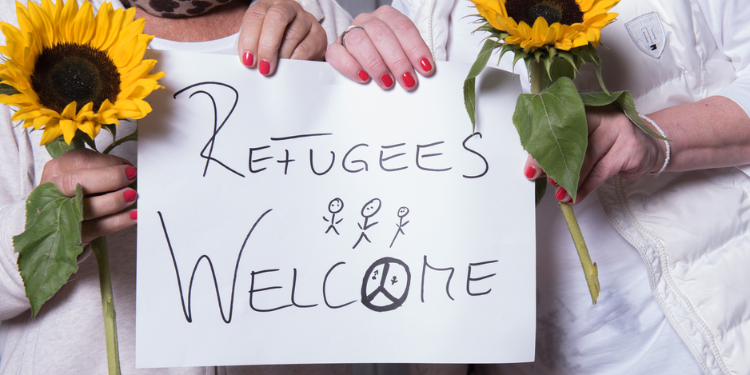
The annual Aurora Humanitarian Index is based on the survey of about 11,000 people in 12 countries (France, Germany, United Kingdom, United States, Argentina, Japan, Kenya, etc.), and their perceptions of global humanitarian issues such as immigration. From those surveyed, 1,053 are British, whose answers show an increasing sympathy towards refugees and immigrants, as well as apparent disagreement with their government regarding the lack of support and legalisation of immigrants.
What do the British people think

More than half (52%) of the British people surveyed believe that the refugees in the UK should receive more attention and support by the local communities and the government. Thirty-eight percent — a number which has increased by 11 points from last year — feels that the United Kingdom as a whole isn't doing enough to help the refugees. Also, there's a ten-point increase since 2017 in the number of people who believe that the British citizenship should be flawlessly given to legal immigrants.
An alarming number (65%) of this year's respondents remains seriously misinformed about the refugee crises around the world and finds it difficult to keep up with the news regarding this matter. For example, almost all participants (96%) aren't fully aware of the fact that the majority of global migrants and refugees find shelter, not in the affluent and advanced western countries such as the UK and Germany, but in the developing world. According to the UNHCR, in 2016, the UK was hosting 118,000 refugees as opposed to almost three million displaced people greeted in Turkey.
Misinformation among the British population is also evident when asked about the age group of refugees and immigrants — most of those surveyed believe that the refugees are mainly adults. However, in reality, 52% of the total global refugee population is under the age of 18; they are children. Thus, there's a crisis within a crisis, which the majority of the British people seem to ignore.
Public opinion vs government's choice

It's encouraging and consoling to see that Britons are not as nationalistic as portrayed by the actions of their government. The public is separating itself from the government's positions regarding the refugee crisis and is putting some pressure on ministers to update the legislation to a more friendly and hospitable one. Xenophobia among the general population is dropping in the UK, and tough immigration policies seem to be out of place in a country which tends towards a more positive stance on immigration issues.
At the same time, global political leaders such as the Chancellor of Germany, Angela Merkel, USA's Donald Trump, and the UK's Theresa May are more trusted than they were the previous years to resolve the refugee crisis. However, they still have a long way to go before they convince the population about their negotiation and leadership skills. Angela Merkel is the most trusted leader (46%), followed by Donald Trump (40%), Vladimir Putin (35%), Pope Francis and Emmanuel Macron (both at 31%), and Theresa May (25%).



















